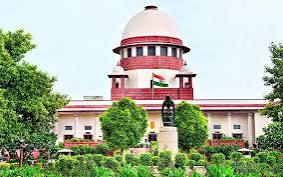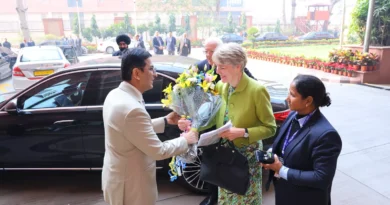THE ANALYSIS OF WAQF BOARD AMENDMENT ACT 2025
INTRODUCTION
An essential component of Islamic heritage is the system of Waqf, which involves the permanent donation of property for philanthropic or religious reasons. Over 6 lakh waqf properties are intended to be protected and regulated under India’s waqflegal system, which is governed by the Waqf Act, 1995. Introduced to modernize this institution, the Waqf Amendment Bill aims to address long-standing problems with oversight, corruption, and poor management. On the other hand, the proposed revisions have generated a great deal of discussion about state interference, secularism, and communal autonomy.
THE BRIEF UNDERSTANDING OF THE TERM WAQF
What does the term “Waqf” mean? According to Islamic law, waqf refers to properties that are solely used for religious or charity purposes; any other use or sale of the property is forbidden. Waqf signifies that Allah transfers and retains the property’s ownership, removing it from the person making it. A “waqif” is someone who makes a waqf for the recipient. Since Waqf properties are given to Allah, a “mutawalli” is chosen by the waqif or another appropriate authority to oversee or manage a Waqf in the event that there isn’t a physically present organization. Ownership is irrevocably transferred from the individual making the waqf (waqif) to Allah after it has been designated as waqf.
OVERVIEW OF THE WAQF AMENDMENT ACT 2025
In order to address the problems and difficulties in regulating and managing Waqf properties, the Waqf (Amendment) Bill, 2024, seeks to alter the Waqf Act, 1995. The goal of the Amendment Bill is to enhance waqf property management and administration in India. By proposing modifications including renaming the Act, revising the definitions of waqf, simplifying the registration procedure, and expanding the role of technology in keeping waqf records, it seeks to address the weaknesses of the previous act and improve the effectiveness of Waqf boards.
KEY CHANGES IN THE WAQF BOARD AMENDMENT ACT 2025
Important clauses of the 2024 Waqf (Amendment) Bill and how they affect Waqf Administration Important clauses of the 2024 Waqf (Amendment) Bill:
As suggested by the Joint Committee on Waqf Amendment Bill, 2024 (JCWAB), the Waqf Act amendments bring about progressive measures such as:
i. Waqf and Trusts Are Separated: Under any law, trusts established by Muslims will not be regarded as waqf, guaranteeing that individuals maintain complete authority over their trusts.
ii. Technology Introduction: Using technology to make waqfproperty administration visible, effective, and scientific.
iii. Creating a Central Portal: Automating the entire waqfproperty life cycle, including contributions, litigation, accounts and audit, and registration.
iv. . Waqf property dedication by a practicing Muslim: Only those who have been a Muslim for at least five years are eligible to dedicate their own property to waqf. By doing this, the previous status that existed prior to the Waqf(Amendment) Act, 2013, when the person eligible to perform waqf was changed from “any person professing Islam” to “any person,” will be largely restored
v. Protection of “Waqf by User” Properties: Unless they are contested or proven to be government land, properties that are already registered with Waqf Boards will stay that way. Out of the 8.72 lakh Waqf properties as of right now, 4.02 lakh are Waqf by User properties, according to WAMSI.
vi. Women’s Rights in Family Waqf: requiring legitimate inheritance for women prior to waqf dedication, with special consideration for widows and divorced women and orphans.
vii. Transparent Waqf Property Management: To improve accountability, Mutawallis must record property details on a central portal within six months
viii. Government Land and Waqf Disputes: To prevent irrational claims, a person higher than the Collector would look into government lands that are claimed as waqf. A total of 5973 government properties have been designated as waqfproperties, according to data obtained on May 9, 2024, from 25 of the 32 States and Union Territories WaqfBoards. During their presentation on 06.09.24, ASI told the JPC that 132 protected monuments had been designated as waqf properties. During its presentation on May 9, 24th, MoHUA told the JPC that 108 properties were under the jurisdiction of the Land and Development Office, 130 properties were under the jurisdiction of the Delhi Development Authority, and 123 properties were in the public domain.
ix. Strengthening Waqf Tribunals: To guarantee stability and effectiveness in resolving disputes, a set tenure and a systematic selection procedure are put in place for tribunal members. There are currently 21618 pending cases in the Tribunals, according to the WAMSI Portal.
x. Waqf Boards with Non-Muslim Representation: Both the Central and State Waqf Boards have two non-Muslim members, recognizing a range of stakeholders.
xi. Lower Annual Contributions: Waqf institutions are now required to pay 5% of their annual contributions to WaqfBoards instead of 7%, which frees up more money for charitable causes.
IMPACT OF THE AMENDMENT
• Digitization for Accountability and Transparency Waqfproperties will be tracked via a centralized digital site, guaranteeing improved management, monitoring, and identification.
• Accounting and auditing procedures will guard against financial mismanagement and guarantee that money is solely spent on welfare.
• More Funds for Development and Welfare Waqf Boards will be able to increase their earnings and expand their welfare programs by preventing the misuse and illegal possession of Waqf lands.
• The economically disadvantaged groups will immediately benefit from funds allotted to housing, livelihood support, healthcare, and education.
• Frequent inspections and audits will increase public trust in Waqf management and encourage financial restraint.
• In order to improve Waqf governance and decision-making, the Bill calls for the inclusion of one member from each of the Bohra and Aghakhani communities on State/UT WaqfBoards, provided that they have a functioning WAQF.
• This will empower the backward classes and other Muslim community sects.
• In addition, Muslims from underprivileged backgrounds will be represented on the Board in addition to Shia and Sunni members.
CONCLUSION
A secular, open, and responsible structure for Waqf management is established by the Waqf (Amendment) Bill 2025. Waqfproperties have philanthropic and religious functions, but managing them entails administrative, financial, and legal duties that call for organized governance. Waqf Boards and the Central Waqf Council (CWC) have a regulatory, not religious, function in upholding the law and protecting the public interest. The Bill establishes a progressive and equitable framework for Waqfadministration in India by strengthening governance, empowering stakeholders, and instituting checks and balances.





